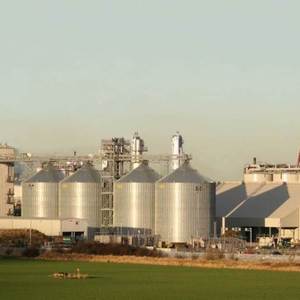CropEnergies may idle UK plant, announces acquisitions

SOURCE: CropEnergies
September 19, 2022
BY Erin Krueger
European ethanol producer CropEnergies AG on Sept. 19 announced it is considering reducing production at its biorefineries in response to rising production costs. The company is also branching out with recent acquisitions of renewable energy and biobased chemical companies.
The company cited increased energy and power prices in combination with continuously high raw material prices as factors that may lead it to reduce capacity utilization or idle its ethanol plants. To date, higher input costs have been offset by higher ethanol sale prices. Recently, however, the company said ethanol sales prices are decreasing significantly due to increased ethanol imports from Brazil and the U.S.
Advertisement
Advertisement
Due to these price pressures, CropEnergies may reduce capacity utilization at its plants starting in January. The company is particularly focused on its Ensus plant in Wilton, U.K., which is being impacted by high natural gas and power prices.
“Within the coming weeks, management will closely monitor the energy, grain and ethanol markets and decide whether capacity adjustments or even a temporary shutdown of individual plants will be necessary,” the company said in a statement. “At the same time, CropEnergies calls on politicians to support companies with energy-intense production and to ensure a level playing field on the European ethanol market.”
Earlier this month, CropEnergies announced it has acquired ownership stakes in both a Dutch biobased chemicals startup, Syclus BV, and a German renewable energy startup, East Energy GmbH.
Advertisement
Advertisement
The company on Sept. 1 announced it has acquired a 25 percent stake in East Energy, which aims to build and operate subsidy-free ground-mounted photovoltatic systems in northeastern Germany under the brand name Sun2Grid. East Energy has set a goal to build out projects with a combined 1 gigawatt (GW) of capacity by the end of 2024. CropEnergies aid it initially plans to invest up to EUR 8 million in East Energy.
A week later, on Sept. 7, CropEnergies announced it has acquired 50 percent of Syclus’ share capital for EUR 1.8 million. CropEnergies said the goal is to build an industrial scale plant for the production of renewable ethylene from renewable ethanol, with the initial investment slated to go toward the development of the future plant. Syclus will initially focus on the technical and economic viability of producing renewable ethylene at Chemelot Industrial Park, which is located in the Netherlands. The company will also deepen discussions with potential clients. If work at Chemlot Industrial Park achieves a positive result, basic engineering work could start in late 2023. The company aims to build a plant with an annual production capacity of approximately 100,000 metric tons and is targeting startup for 2026.
Related Stories
The European Commission on July 18 announced its investigation into biodiesel imports from China is now complete and did not confirm the existence of fraud. The commission will take action, however, to address some systemic weaknesses it identified.
Kintetsu World Express Inc. has signed an additional agreement with Hong Kong, China-based Cathay Pacific Airways for the use of sustainable aviation fuel (SAF). The agreement expands a three-year partnership between the two companies.
On July 18, U.S. EPA announced a reduction in force (RIF) as the agency continues its comprehensive restructuring efforts. With organizational improvements, EPA is delivering $748.8 million in savings.
Broco Energy on July 17 announced a new partnership with the Massachusetts Port Authority (Massport) to deliver and transition Massport's fuel tanks to renewable diesel across its various facilities.
Shell Aviation, Accenture, and Amex GBT on July 10 announced Avelia is in the process of evolving to an industry solution with independent data hosting and a multi-supplier model helping users access the GHG benefits of SAF.
Upcoming Events










